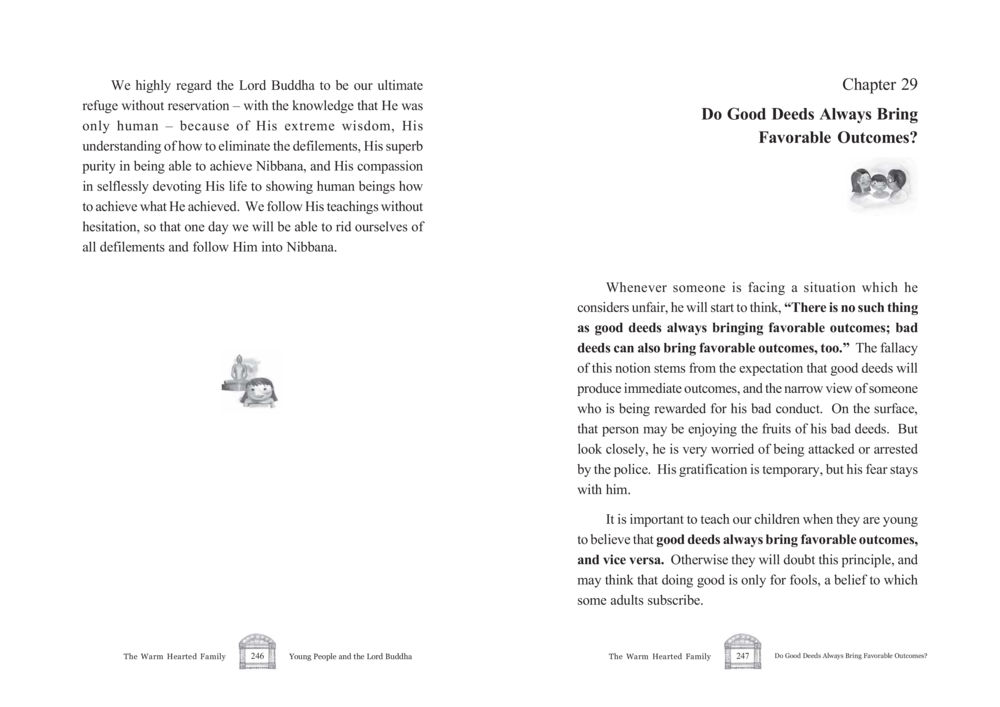The Teachings of the Lord Buddha: Good Deeds and Their Outcomes : หน้า 124/207
The Warm Hearted Family : หน้า 124/207 Explores the teachings of Buddha on good deeds and their inherent value, emphasizing the importance of maintaining faith in positive actions.
1 ครั้ง

สรุปเนื้อหา
We regard the Lord Buddha as our ultimate refuge due to His wisdom and compassion. His teachings guide us towards eliminating defilements and achieving Nibbana. The chapter discusses the misconception that good deeds do not always yield favorable outcomes, highlighting the importance of instilling faith in good actions in children to prevent them from doubting this principle. It's essential to recognize that while bad deeds may seem rewarding initially, they come with underlying fears and consequences, contrasting the lasting satisfaction of virtuous living. Only through steadfast adherence to good deeds can we aspire to the higher state of Nibbana as exemplified by the Buddha. For further insights, visit dmc.tv.
หัวข้อประเด็น
-The significance of the Buddha's teachings
-The nature of good and bad deeds
-The misconception of immediate outcomes
-The importance of moral upbringing in children
ข้อความต้นฉบับในหน้า
หน้าหนังสือทั้งหมด















































































































































































































